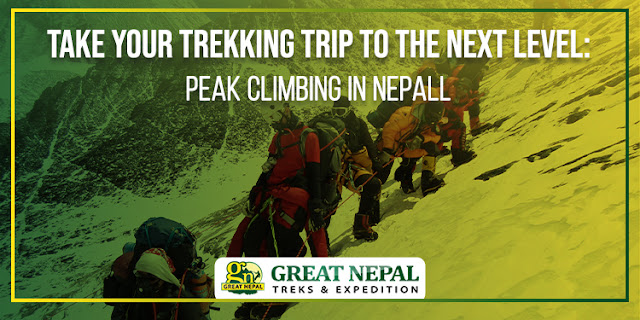Best time to visit Nepal
ARE YOU STILL IN DILEMMA??
 "WHEN IS THE BEST TIME FOR TREKKING IN
NEPAL??"
"WHEN IS THE BEST TIME FOR TREKKING IN
NEPAL??"
"In fact Nepal is for all seasons and all regions"
 "WHEN IS THE BEST TIME FOR TREKKING IN
NEPAL??"
"WHEN IS THE BEST TIME FOR TREKKING IN
NEPAL??""In fact Nepal is for all seasons and all regions"
Trekking in
Nepal can be carried throughout the year. So with a little disappointment to
you, there is no right answer to this question.
Also, the
best time for trekking depends on the following factors.
• The type of trek you plan,
• Whether it is a restricted zone or not,
• How high you plan to trek,
• How comfortable are you with cold
weather and
• Are you comfortable with the crowd?
Nepal is a
broadly temperate country, with four major seasons. While every season has its
own pros and cons, various destinations have its own preferred season. But
since the most visits to Nepal is for trekking and most trekkers usually prefer
most popular treks in Nepal, the month of autumn sees the highest crowd of visitors.
Then after, spring is the right time to travel as there are clear skies and
winter has just ended.
Read below
and you will know which season opens the gate to which particular destination.
Autumn/Fall
(September – November)
Autumn is
considered as the best season for trekking in Nepal. It is normally dry, stable
and clear. The weather is most reliable during this season as the recent rain
has cleared all the dust and the sky is clear which makes it an excellent
weather and gives tantalizing mountain views. The season also caters the few of
the most important festival of Nepal, Dashain, and Tihar, making it the
preferred season for all travelers as they get to enjoy the local festival and
culture. The most traveled destinations during this month is Everest Region,
Annapurna Region.
Winter
(December – February)
Winter is
generally a risky time for trekking to higher altitudes. It is a great time to
trek lower altitudes. This season notes occasional snowfall at higher
elevations with risky winds and colder temperature. Though it gets cold at
night, but the days offer clear skies, also relatively very fewer trekkers are
seen on the trail. However, while choosing treks during winter as climbing and
crossing high passes trip won’t be an ideal option. Hence lower elevation
destinations are ideal for trekking. Climbing Mera peak, Island peak, Chulu,
Annapurna, Everest, Langtang in early winter have been quite popular over the
past few years.
Spring
(March- May)
Spring is
the second best season opted by many tourists. During spring the days are
longer and the weather is warmer. The mornings are usually clear but afternoons
can be a bit cloudy with occasional rains. The main factor why this season sees
a fall in no. of visitor is a disappointing haze that keeps up in the elevation
during this period. However different varieties of wildflower especially
rhododendrons make the hill station a paradise for nature lovers, also it is
the best time for viewing the wildlife. Late-march to April is especially
beautiful as it is also a good time for trekking in the high passes which are
usually snow-free and the mountain views are still clear in April. Up to May,
the weather becomes hazy and disturbed with the clouds.
MONSOON (June – August)
MONSOON (June – August)
June to
early Septembers is the main rainy season in Nepal which involves heavy
rainfall making the treks very unfavorable. Rainfall in Nepal has its own twist
as it rains during night which clears the sky and gives the Himalayas an
enchanting view. These times are paradise for botanist and keen Forest researchers
as the higher valleys and meadows are blessed with flowers and lush
vegetations. There is also an exception to thunderstorm, hail storm and strong
winds which make it a pretty bad season to trek. However, trekking regions connecting
to Tibet and some desert parts of Nepal like Manang, Upper Mustang, Nar-Phu
Valley, Tsum Valley and Upper Dolpo or Far West Nepal are best trekking routes
during this season. As these regions lie in a rain-shadow, it receives
significantly less rainfall than the southerly areas.




Comments
Post a Comment